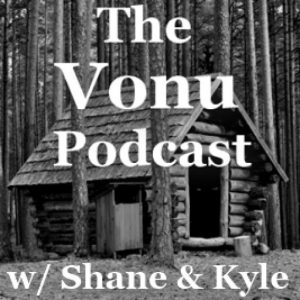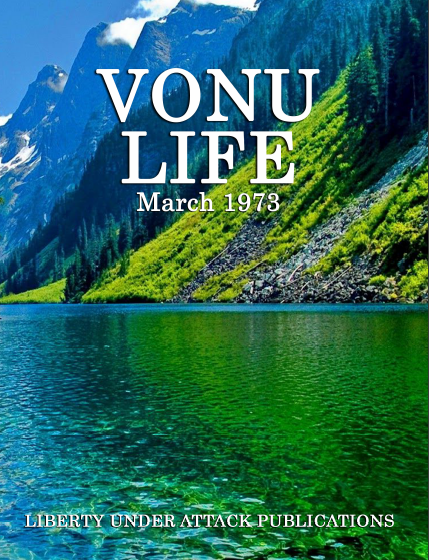Note: The following is an article by TVP host, Kyle Rearden, published on his blog, The Last Bastille.
“The spectacle is the ruling order’s nonstop discourse about itself, its never-ending monologue of self-praise, its self-portrait at the stage of totalitarian domination of all aspects of life…[t]he spectacle is totally dogmatic, yet it is incapable of arriving at any really solid dogma. Nothing stands still for it. This instability is the spectacle’s natural condition, but it is completely contrary to its natural inclination…[t]he dominion of the concentrated spectacle is a police state.”
– Guy Debord (1967)
A servile society could be defined as one that does not respect self-ownership or individual liberty, but rather heralds the supremacy of government and authority; in other words, it upholds the collective as superior to the individual. Every aspect of the servile society is oriented towards unmitigated subservience towards those malfunctioning individuals who falsely imagine themselves to be our rulers. Regardless of the specific flavor of authoritarianism, a key recurring theme of the servile society is that blind obedience to the State is considered to be a virtue.
Throughout the 1960s & early ‘70s, Rayo considered the servile society as essentially being composed largely of Good Germans (specifically, Good Americans), and therefore a fundamental threat to his freedom. As he was formulating vonu (the condition or quality of, as well as the action of achieving, an invulnerability to coercion), Rayo expressed the following thought:
“An optimally-liberated life-style must involve a sort of one-directional isolation. The liberator maintains his access to their open-but-not-free trading centers while denying them access to his home. This requires a skillful blend of concealment and deception, plus perhaps elements of mobility and deterrence. A freeman obtains information, techniques, key equipment, and supplies out of the Servile Society, exporting labor or products in return. And during import-export activities he practices deception – perhaps carries a driver’s license (‘genuine’ or faked); perhaps pays some sales taxes he cannot conveniently avoid. But the freeman’s ‘home base’ is physically concealed. There he spends most of his time. There he may sleep, imbibe, love, design, build trade (with fellow freemen), and raise children in relative safety from the savages of State. A freeman’s home must be a figurative castle.” [emphasis added]
Detailing earlier the five protective means of defense, deterrence, mobility, deception, and concealment in equal measure, Rayo conceived of how at least two (if not three or four) of them could be used to enable the “importation” of needed goods and knowledge while also facilitating the “exportation” of labor or products back out to the servile society. This one-directional isolation implicitly recognized that despite the dangers of the servile society to one’s liberty, some degree of interaction was still necessary for survivability.
Strategically speaking, the idea behind import-export is to concisely explain how vonuans (those who have an invulnerability to coercion) relate to the servile society. Given all the political crusading, controlled schizophrenia, and collective-movementism of the servile society, those who are pursuing vonuence (the process of achieving an invulnerability to coercion) ought to shield themselves from the time-sinks the servile society tries to distract everyone with, like the news cycle. Rayo continues:
“The higher maximum of satisfaction is attained by someone with a liberated home-based plus some import-export with the servile society. For him, contact with the State is an occasional annoyance and danger, not a big part of his life; thus, he can avoid the psychological paralysis that afflicts so many ‘non-conformists.’ Compared to the opportunistic serf he may enjoy somewhat fewer conveniences (at present) but is happier overall. On the other hand, he has more than someone living in the primitive isolation required for 100% freedom.”
Developing a Second Realm with its own vonuums (the place or situation of an invulnerability to coercion) is the focus of vonuists (those who advocate for an invulnerability to coercion) and vonumers (those skilled at an invulnerability to coercion) alike, not trying to “save” or “restore” the minarchist ship that is American republicanism with its decrepit Constitution.
Good Americans (or “system inhabitants,” as one of my readers calls them during her broadcasts) often claim that they value freedom and liberty while waving the flag, yet they’re actually lying to themselves and each other when they do so. What they really value is safety, convenience, and authority; by contrast, anything that’s risky, obstructive, or decentralized (peer-to-peer) is feared, hated, and scorned by Good Americans reflexively, without question. As Rayo put it:
“[F]reedom is not a monolithic entity; there are various degrees. But not all degrees are necessarily viable. For most people, I suspect that choice is between predominately servile (vulnerable) life-styles and predominately liberated (invulnerable) life-styles.”
Emotional security blankets, whether under the guises of patriotism, nationalism, or even “Trumpism,” are just disposable labels that are evocative of conspicuous consumption (consumerism), which, in reality, are all anti-free market. My point here is that Good Americans are more than happy to remain quite vulnerable to coercion provided that they solely rely upon legal interstices for protection against said coercion.
Communication within the servile society is greatly hampered because any line of cohesive thought gets interrupted by one thing or another. Putting up a premise, much less a syllogism (logical argument), is virtually impossible in most circumstances, because the Good Americans’ mode of speech does not allow enough time to articulate much of anything due to repeated interruptions. There is only just enough time to spit out either commands or questions (“You! Grab that!” or “May I take your order?”), but nowhere near enough to actually facilitate a real conversation about much of anything.
That being said, this handicap of the servile society need not inhibit commercial activity (although it does inhibit cultural activity, but it’s not like you need them for that, do you?). Rayo explained that:
“We believe primitivism would mean less vonu in the long run. (Primitive societies run afoul of bludg-land sooner or later – consistent avoidance of something requires some knowledge of it.) And there are too many capabilities/things we wish to develop which require equipment, materials and knowledge out of the other society – technology our society doesn’t have yet. But personal travel isn’t necessary for import-export. All that is needed (for now) is a way to get parcels and messages in and out – interfaces with the freighting and communication services of that society.”
In other words, import-export activities are a practical stopgap until vonumy (the art of achieving an invulnerability to coercion) is better developed. Once our Second Realm of vonuums and agoras enjoys its own infrastructure separate and independent from the servile society, then import-export will greatly diminish or possibly evaporate given enough time. Rayo also wrote that:
“In one sense, such a freeman cannot be completely free since his import-export is restricted. Neither would be a resident of a utopian ‘free country’ who traded with someone in Russia – or Amerika. Import-export is easier for extraterritorial freemen than for residents of another country, since controlling millions of square miles of interior is vastly more difficult than thousands of linear miles of border. In either case, with growth, import-export becomes relatively smaller and more in the hands of specialists at ‘border crossings.’ The liberated-home freeman, unlike the conventionally living libertarian, can segregate import-export from the rest of his life – essentially for development of durable, growing, joyous, free mini-cultures.” [emphasis added]
Simply put, networks of private property enclaves with their own “borders,” invulnerable to coercion by our enemy, the State, with their own folkways that cater to your lifestyle preferences, are a highly practical way to securely exercise one’s autonomy. You don’t need coercive monopolies calling themselves “government” in order to “tax” you so as to fund any “public” services (whether security, roads, or pensions), because it is the Market, not the State, which truly provides us with the indispensable necessities of life.
Future projections are rather optimistic, if only due to the necessity of surviving early 21stcentury America, such as it is. Rayo observed that:
“More and more people are rejecting the attitudes and roles of the servile society. While only a small minority of the whole population, they number [in the] tens of thousands. Some attempt to ‘turn back the clock’ by moving to farms or small towns. But rural dwellers are conspicuously unfree. So those who really want freedom will search in other directions.”
Potential resistance to the statist quo is there, but it ought to be harnessed so that the productive capabilities of truly freed Americans can kick off the end of the State. Making this more concrete, Rayo once suggested elsewhere that when purchasing land, it might be preferable for the title deed holder to be a woman who has limited interfacing with the servile society, because she wouldn’t be targeted for military conscription and also she wouldn’t be socially expected to be employed (keep in mind, this recommendation of his was made in 1971); such a heroine choosing to do this would lower the risk that the land would be forcibly confiscated by the State due to lawsuits, taxes, or regulations.
Vonu is yours for the making, but only if the social norms and cultural expectations of the servile society are rejected wholesale through import-export beneficial to vonuans. As Rayo succinctly phrased it:
“Function determines form, means determine ends.”
Put another way, it’s not the destination, it’s the journey (or maybe the journey makes the destination what it is?). Much like voluntaryism, vonu represents a means, an end, and an insight – part of that very insight is that Good Americans within the servile society are living vulnerable lifestyles, and thus they have nobody but themselves to blame for when tragedy befalls them, for as Rayo said:
“One who continues in a vulnerable life-style and then complains when he is plundered, is somewhat like a West Indies resident who builds a flimsy house and then blames the next hurricane for demolishing it. Certainly, people are to blame when they inflict coercion. But merely blaming them does not bring liberty. The self responsible person builds a home which can withstand likely storms, and develops a way of life not vulnerable to likely attempts at predation.”
The truth is that they had a choice, all of them – and so do you.


31 Replies to “A Servile Society: The Value of Import-Export”